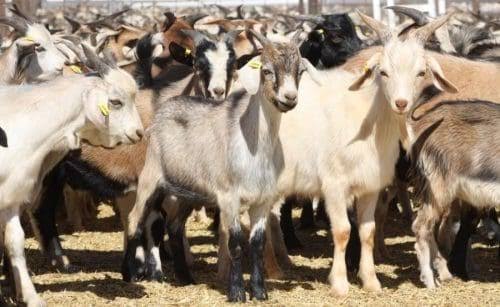10 ways to manage odours in a ruminants farm with full explanations
1. **Proper Manure Management:**
Implement effective manure management practices on the ruminant farm to minimize the decomposition of organic matter. Proper storage, composting, or utilizing manure as fertilizer can significantly reduce the release of odorous gases, addressing one of the primary sources of smells.
 Learn More
Learn More
2. **Ventilation and Air Circulation:**
Ensure good ventilation and air circulation within the barns and facilities where ruminants are kept. Proper airflow helps disperse and dilute odorous compounds, preventing their concentration in enclosed spaces and promoting a healthier environment.
3. **Bedding Management:**
Regularly change and manage bedding materials to prevent the buildup of odors associated with decomposing bedding. Clean and well-maintained bedding contribute to a more hygienic environment and reduce the release of unpleasant smells.
4. **Pasture Rotation:**
If ruminants have access to pasture, implement a rotational grazing system. This allows for natural fertilization of the land and prevents the buildup of manure in a concentrated area, minimizing odors associated with manure decomposition.
READ ALSO 5 key diseases of goats you must not joke about
5. **Odor-Reducing Additives:**
Consider using additives in feed or manure to reduce the production of odorous compounds during digestion or decomposition. Certain additives can alter the microbial processes, leading to a reduction in the release of malodorous gases.

6. **Biological Odor Control:**
Utilize biological solutions, such as biofilters or microbial treatments, to break down and neutralize odorous compounds. These environmentally friendly methods can be applied to ventilation systems or specific areas to enhance odor control.
READ ALSO 5 key diseases of cattle you must not joke about
7. **Vegetative Buffers:**
Planting vegetation around the farm perimeter acts as a natural buffer against odors. Trees, shrubs, or other plants help filter and absorb odorous compounds, minimizing the impact of smells on neighboring areas.
8. **Waste Water Management:**
Proper management of waste water from cleaning and other farm activities is crucial. Preventing the buildup of stagnant water can reduce the potential for odors, as stagnant water can become a breeding ground for odorous bacteria.
9. **Regular Facility Cleaning:**
Establish a routine cleaning schedule for barns, feeding areas, and other facilities. Thorough cleaning reduces the accumulation of waste and organic matter, addressing one of the main contributors to persistent odors on the farm.
ATTENTION: Click “HERE” to join our WhatsApp group and receive More updates directly on your WhatsApp!
10. **Community Engagement:**
Foster open communication with neighboring communities. Share information about odor control measures in place, address concerns, and involve the community in discussions about farm practices. Building a positive relationship helps create understanding and support for the farm’s efforts to manage odors responsibly.
🧩CREATED BY DR JOSEPH DEJI-FOLUTILE















